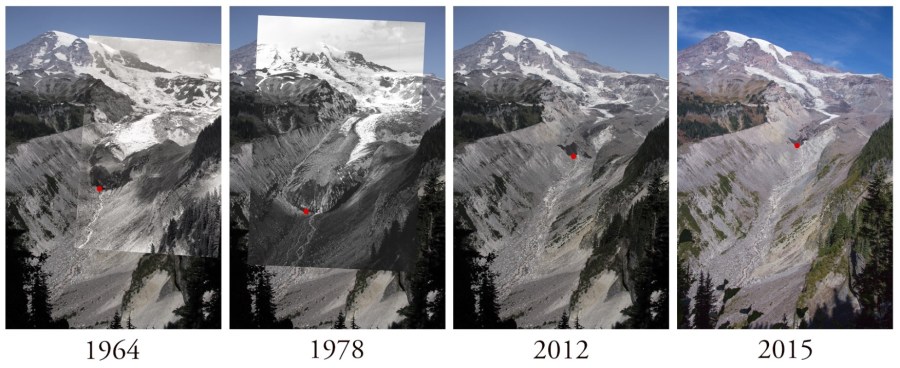PORTLAND, Ore. (KOIN) — Known for its vast array of ecosystems and colossal glacier-clad peaks, the natural beauty provided by Washington’s Olympic Peninsula could look completely different in less than 50 years, according to recent research.
A staggering new study led by Andrew G. Fountain, professor of geology and geography at Portland State University, predicts the Olympic Peninsula glaciers will have largely vanished from the region by the year 2070.
According to the study, “Glaciers of the Olympic Mountains, Washington — The Past and Future 100 Years,” which was published in the Earth Surface Journal of Geophysical Research Wednesday, half of the Olympic Peninsula glacial region has disappeared since 1900.

While the study suggests some glaciers will likely linger as mere “shells of their former selves,” Fountain argued there is no stopping this train set in motion.
“There’s little we can do to prevent the disappearance of these glaciers,” Fountain stated. “We’re on this global warming train right now. Even if we’re super good citizens and stop adding carbon dioxide in the atmosphere immediately, it will still be 100 years or so before the climate responds.”
The study found the Olympic Peninsula has already lost 35 glaciers and 16 perennial snowfields since 1980.
Despite his belief that glacier melt is beyond prevention, Fountain said implementing efforts to reduce the harm of climate change will be crucial moving forward, stating in a PSU release Wednesday, “This is yet another tangible call out for us to take climate change seriously and take actions to minimize our climate impact.”
The new PSU study has sparked national interest with Dan Cayan, a research meteorologist at the Scripps Institution of Oceanography of the University of California, stating that the findings show glaciers are a “hydroclimate finger on the pulse of Pacific decadal climate.”
According to Cayan, the ongoing glacial mass disappearance observed within the Olympic Peninsula is evidence of global warming.

(Courtesy Portland State University)
“This is a clear and compelling signal of changes that are rolling out across many North American landscapes,” Cayan stated. “It is regrettable that the Olympic glaciers are very likely to melt away as climate warming over the coming decades runs its course.”
The PSU research predicts the loss in glacial mass will provoke a chain of climate reactions including the decrease in alpine streams, which would likely result in the subsequent reduction of the species that rely on them, such as bull trout.
“Once you lose your seasonal snow, the only source of water in these alpine areas is glacier melt. And without the glaciers, you’re not going to have that melt contributing to the stream flow, and therefore impacting the ecology in alpine areas,” Fountain said. “That’s a big deal with disastrous fallout.”
These findings are supported by data published by the U.S. Geological Survey in February, which found glacial ice was similarly shrinking in the North Cascades of Washington, Glacier National Park, Montana and Alaska.
According to PSU Fountain will now expand on his research and broaden his focus to the entire West, with the hopes of developing, “a comprehensive view of glaciers in Washington, Oregon, California, Montana, Wyoming and Colorado.”
